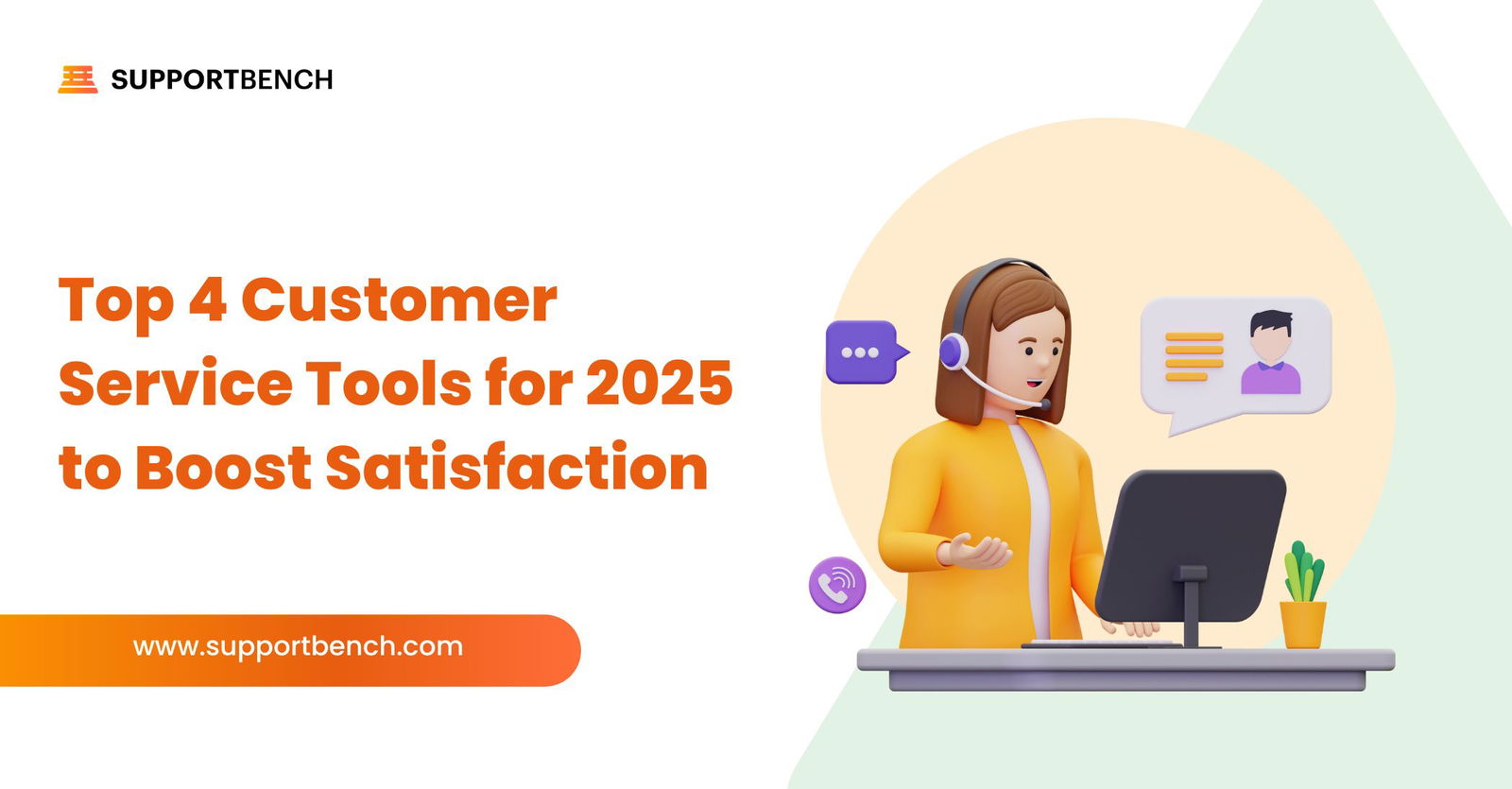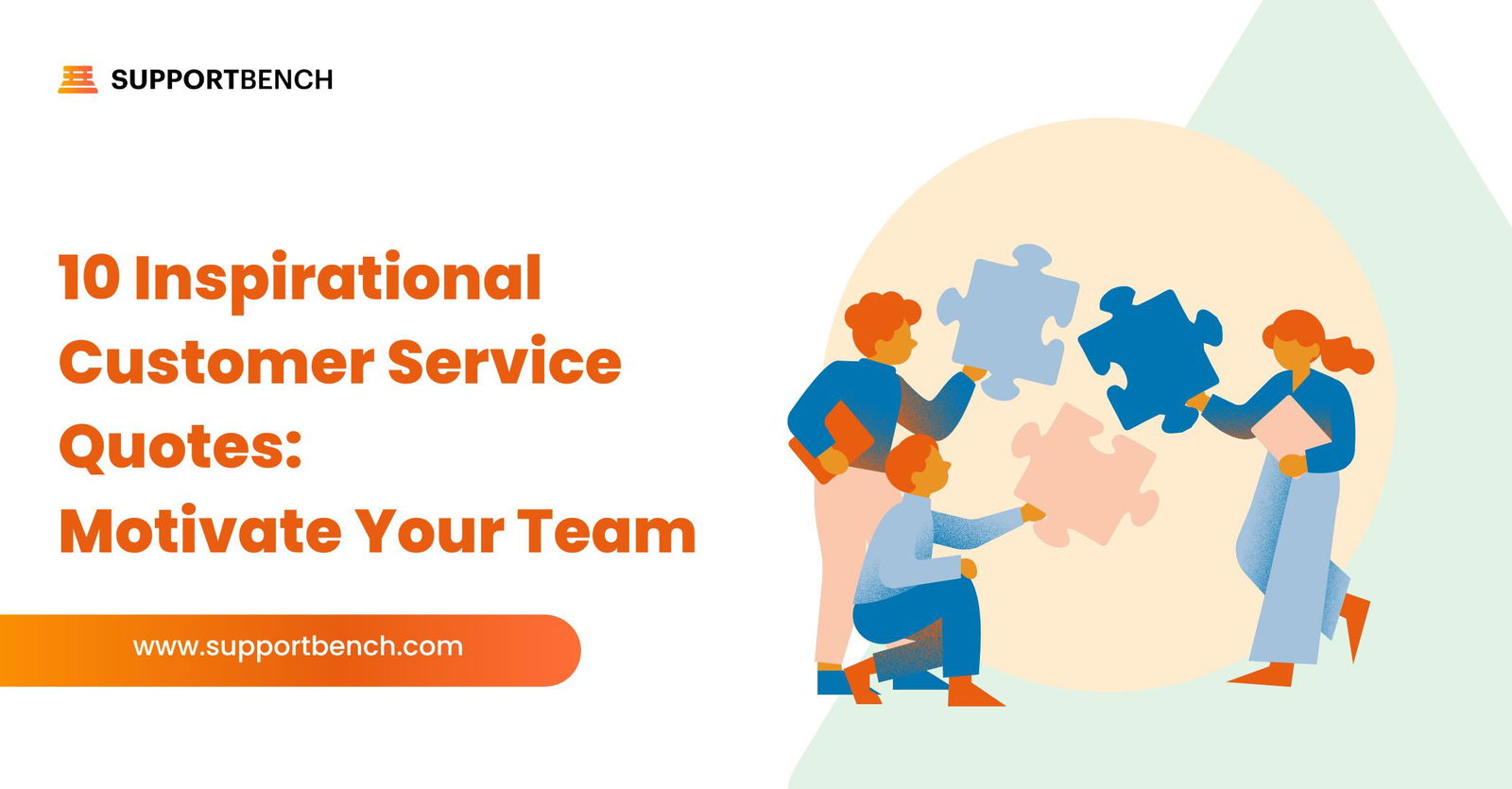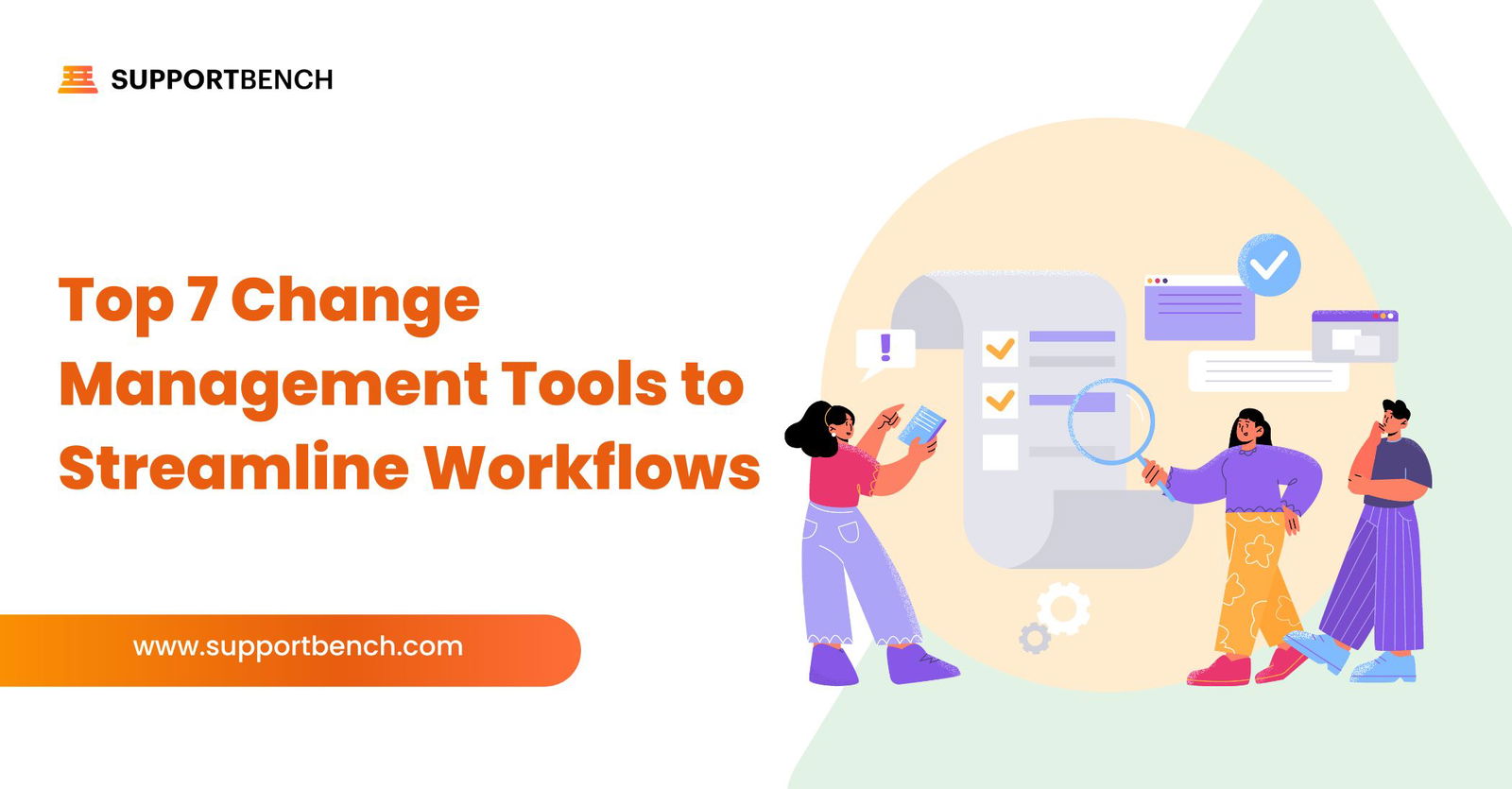Introduction
The Challenges of B2B support teams
Over the past 30 years, I have had the privilege of witnessing and participating in the evolution of customer support in both B2B and B2C industries. As the corporate landscape has changed, particularly in B2B enterprise SaaS, customer support teams have faced new challenges and demands. The introduction of subscription-based licensing in B2B organizations has led to a significant shift in how we now support customers, with different priorities, challenges, and goals.
With this new model, B2B support teams are expected to provide not just reactive support, but also proactive, consultative, and strategic services or risk losing these high value clients. These changes have brought about a variety of challenges that today’s support teams must address. For instance, B2B customers now expect rapid response times, personalized support, and a deep understanding of their business processes and challenges. In fact, a study by SuperOffice found that 88% of B2B customers expect a response within an hour, and 54% expect a response within 15 minutes when reaching out for support.

Certainly, the stakes are much higher in B2B support as contracts are often worth millions of dollars, and the loss of a single customer can have significant financial implications. According to Harvard Business Review, acquiring a new customer can be anywhere from 5 to 25 times more expensive than retaining an existing one.
Let’s look at the impactful differences between B2B and B2C support in terms of processes, customers, and tools, and how the B2B industry has evolved from a transactional to a transformational model. By delving into these differences, we’ll give valuable insights, tips, and tricks for optimizing support in the modern B2B environment.
How the B2B has evolved from transactional to transformational
We all remember that B2B support was primarily focused on addressing specific product or service issues as they arose. Support teams were reactive units, waiting for customers to encounter problems before providing assistance. This transactional approach was great when customer relationships were only based on a one-time exchange of goods or services. However, subscription-based licensing changed everything. And with this increase in complexity of business processes, B2B support had to undergo a transformational change.
Today, B2B support is about fostering long-term relationships with clients, delivering value beyond the initial transaction, and ensuring their success throughout the entire customer lifecycle. This transformational approach emphasizes a proactive and consultative mindset, where support teams are expected to not only resolve issues but also help customers achieve their business goals by providing strategic guidance and leveraging their deep understanding of the clients’ unique needs and challenges.
The evolution of the B2B SaaS has not only affected the way we support customers but also the way we measure success, particularly in support. Traditional key performance indicators (KPIs) like the number of tickets resolved, average response time, and customer satisfaction scores are no longer sufficient. Instead, modern B2B support teams must focus on KPIs that reflect the value they bring to customers, such as customer retention, customer lifetime value, and the impact of support on customers’ key business objectives.
As we delve deeper into the differences between B2B and B2C support, we’ll explore how the evolution from transactional to transformational support has necessitated changes in processes, customer understanding, and tools, and discuss how B2B organizations can adapt to these new demands to provide the best possible support experience to their clients.
The Differences Between B2B and B2C Processes
Transactional B2C vs the relationship-focused B2B
While B2C and B2B customer support may seem similar at first glance, there are critical differences in the processes and priorities that shape their approaches. One of the key distinctions lies in the nature of the customer interactions: B2C support tends to be transactional, while B2B support is heavily relationship-focused.
In the B2C, customer interactions are often centered around individual purchases, quick resolutions, and one-time exchanges. Customers expect prompt, efficient service that resolves their issue with minimal effort on their part. According to a study by McKinsey, 75% of B2C customers consider speed to be the most important factor in their support experience.
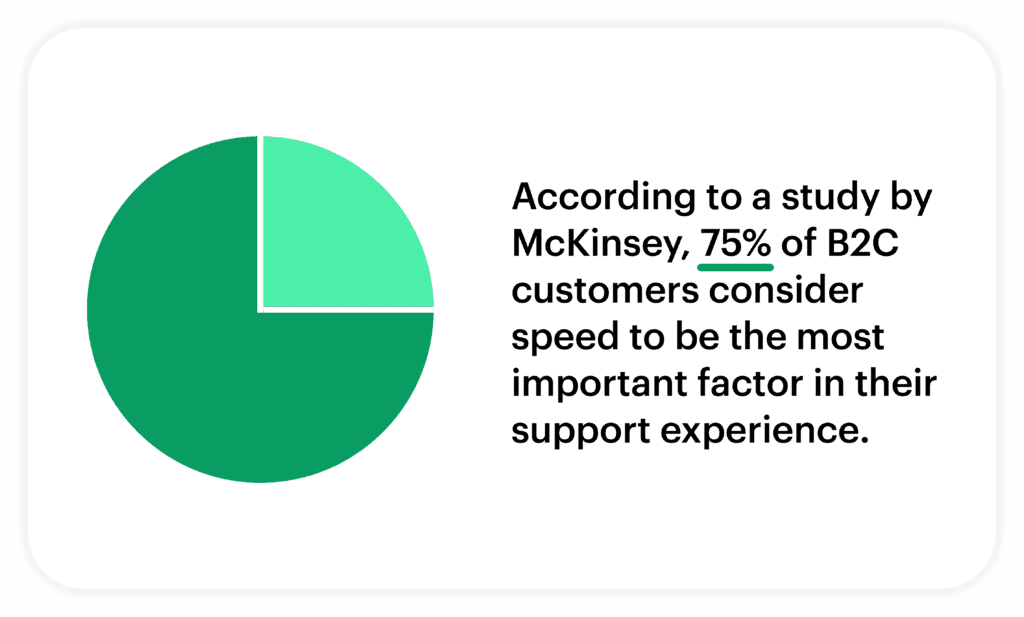
Conversely, B2B support is characterized by long-term engagements, complex solutions, and ongoing relationships. B2B customers require more than just issue resolution; they need a partner who understands their business, anticipates their needs, and helps them achieve their strategic objectives. A report from Accenture reveals that 80% of B2B customers consider a supplier’s ability to understand and address their individual needs to be a crucial factor in deciding whether to continue doing business with them.
This relationship-focused approach in B2B support demands a different set of skills and processes compared to the transactional nature of B2C support. B2B support teams need to develop deep expertise in their customers’ industries, proactively identify opportunities for improvement, and collaborate with customers to drive success. Consequently, B2B organizations must prioritize relationship-building, strategic thinking, and proactive support to create lasting partnerships that deliver value beyond the initial transaction.
Customer retention and relationship building in B2B
In the B2C world, customer acquisition is often the primary focus, with a vast pool of potential buyers and the potential for rapid growth. However, in the B2B sector, the landscape is markedly different. Customer acquisition can be a lengthy and expensive process, making customer retention and relationship building even more critical for sustainable growth.
According to research by Bain & Company, a 5% increase in customer retention can lead to a 25% to 95% increase in profits, emphasizing the significance of retaining existing customers in the B2B arena. Additionally, Gartner estimates that 80% of a company’s future revenue will come from just 20% of its existing customers. These statistics underscore the importance of maintaining strong, long-lasting relationships with B2B clients.
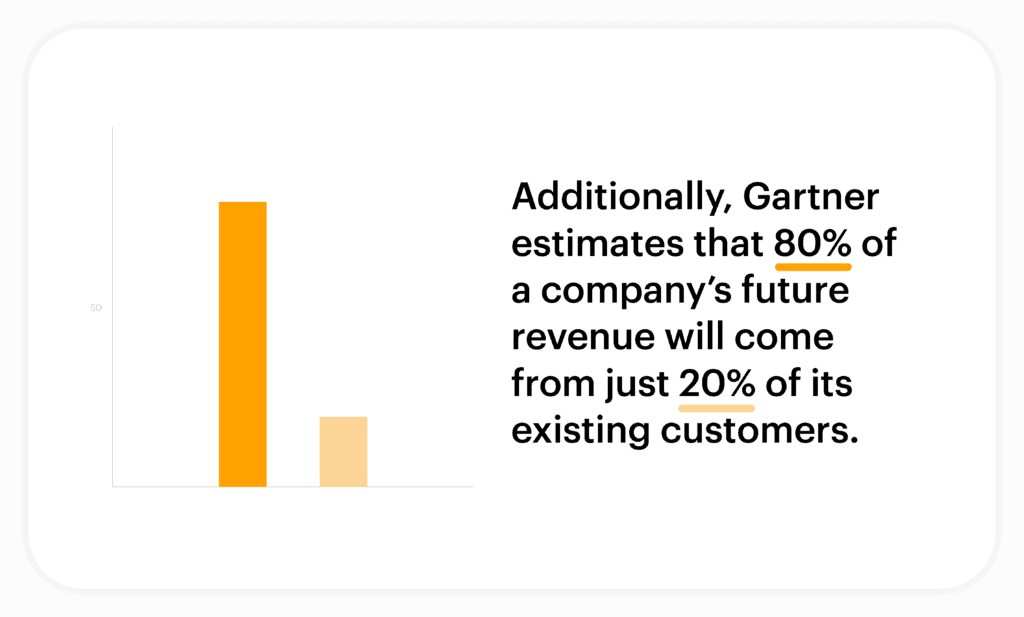
The emphasis on customer retention and relationship building in B2B support requires a more consultative and proactive approach, as opposed to the reactive mindset often found in B2C support. B2B support teams must actively engage with customers to understand their evolving needs, provide tailored guidance, and ensure their ongoing success. This includes offering strategic advice, sharing best practices, and collaborating closely with customers to help them achieve their business objectives.
To excel in B2B customer support, organizations must prioritize relationship-building activities, such as regular check-ins, business reviews, and workshops, to demonstrate their commitment to customers’ long-term success. Furthermore, they must invest in the professional development of their support teams, equipping them with the skills and knowledge required to serve as trusted advisors and partners to their clients. By focusing on these critical aspects of B2B support, companies can foster customer loyalty, drive retention, and ensure sustainable growth.
The danger of B2C tools in B2B support
While B2C support strategies and tools have proven effective in their respective domain, applying these same principles to B2B support can be detrimental to customer relationships and long-term success. B2C tools and mindset often prioritize efficiency and speed, potentially sacrificing the depth of understanding and level of personalization that B2B customers require.
In B2C, support interactions are usually brief and narrowly focused on specific issues. Consequently, B2C tools are designed to streamline communication and minimize the time spent on each interaction. However, B2B customers often have more complex needs that require detailed discussions, careful analysis, and ongoing collaboration. A study by Salesforce found that 72% of B2B customers expect personalized engagement based on their specific needs, and 69% expect companies to anticipate those needs.

Applying B2C tools to B2B support can lead to superficial interactions that fail to address the underlying concerns and long-term goals of B2B customers. This approach can erode trust, damage relationships, and ultimately result in the loss of valuable clients.
To avoid these pitfalls, B2B support teams must shift to relationship-building and strategic collaboration. This means adopting tools and processes that facilitate deep customer understanding, personalized engagement, and proactive support. It also requires cultivating a mindset that values long-term customer success over short-term issue resolution.
By recognizing the very unique demands of B2B support, organizations can give a level of service their clients expect, thereby building lasting partnerships, and securing a competitive edge in the rapidly evolving world of enterprise SaaS.
B2B vs B2C Customers
B2B customers are sophisticated
B2B customers often represent entire organizations with diverse needs, intricate business processes, and an array of stakeholders involved in decision-making.
Whereas B2C customers are generally individuals who interact with support agents to address isolated issues or concerns, that can be resolved with minimal background information. In vast contrast, B2B customers require support teams to have a comprehensive understanding of their organization’s structure, goals, and challenges to provide meaningful and impactful solutions. According to a study by Walker, by 2020, customer experience has overtaken price and product as the key brand differentiator, making it essential for support teams to understand and cater to the unique needs of B2B customers.
The complexity of B2B customers extends beyond their organizational structure and into the products and services they require. B2B solutions are often highly specialized, tailored to specific industries or use cases, and involve integration with other systems and applications. Support teams must possess in-depth knowledge of these solutions, as well as the broader business context, to effectively assist B2B customers.
To address the complexity and sophistication of B2B customers, support teams must invest in industry-specific tools and a deep understanding of the customers’ unique challenges. By doing so, they will be better equipped to provide personalized, high-impact support that drives customer success and fosters long-term relationships.
The higher expectations of B2B customers
Given the substantial financial investments and the critical nature of the solutions they rely on, B2B customers require a higher level of support to ensure their organizations continue to run smoothly and efficiently.
In the B2C, customers often seek quick fixes to isolated issues, focusing on convenience and speed. On the other hand, B2B customers require prompt, accurate responses, deep product knowledge, and a thorough understanding of their business objectives. According to a study by PwC, 73% of B2B customers consider a company’s ability to solve their problems quickly as the most important factor in a good customer experience.
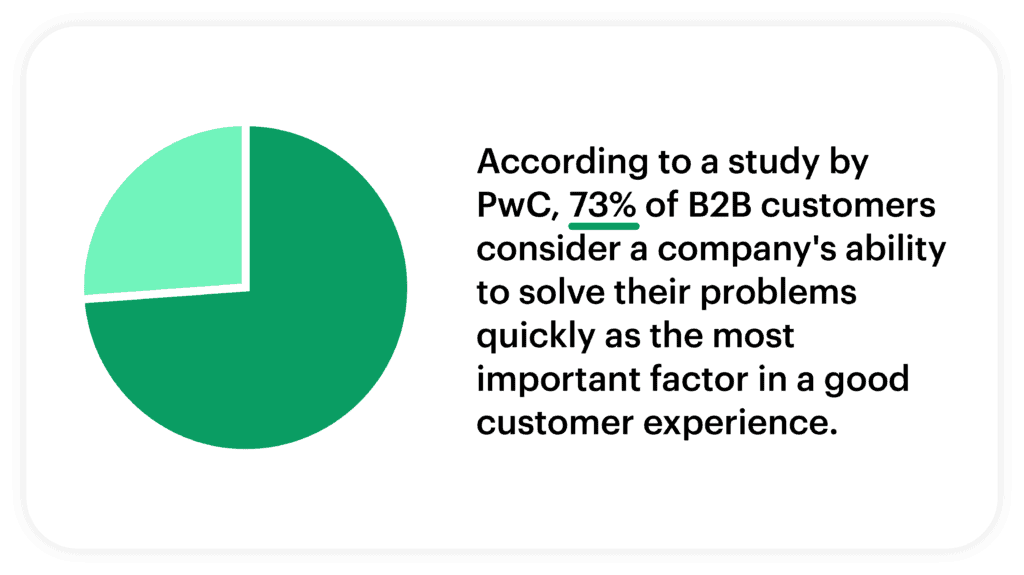
B2B customers expect a more proactive approach to support, with regular communication, updates, and strategic guidance to help them get the most value from their investment. A survey by Forrester found that 68% of B2B customers expect companies to provide proactive support, anticipating and addressing their needs before issues arise.
To meet these heightened expectations, B2B support teams must cultivate a deep understanding of their customers’ businesses, industries, and goals. They must also invest in robust tools and processes that enable them to provide personalized, proactive support, and foster strong communication channels to keep customers fully engaged.
By rising to the challenge of meeting the higher demands of B2B customers, support teams can solidify their role as trusted partners, driving customer satisfaction, retention, and long-term success.
B2B support must be personalized
In today’s competitive landscape, a personalized approach to customer support is integral in the B2B.
We know that B2C customers prioritize speed and convenience in their support interactions, with less emphasis on personalization. In many cases, a standardized solution is sufficient to address their concerns. However, B2B customers have more intricate requirements that cannot be met with a one-size-fits-all approach. According to a survey by Accenture, 91% of B2B customers expect their suppliers to provide personalized experiences based on their unique needs and preferences.
To deliver the level of personalization B2B customers expect, support teams must first develop a deep understanding of each customer’s business, industry, and objectives. This requires a commitment to ongoing learning and collaboration, as well as the use of advanced tools and techniques to collect and analyze customer data.
Next, B2B support teams must leverage this knowledge to provide customized solutions, tailored advice, and proactive recommendations that align with each customer’s specific needs. This may involve developing personalized training programs, offering customized product configurations, or providing strategic guidance on best practices and industry trends.
By adopting a personalized approach to B2B support, organizations can not only meet the rising expectations of their customers but also build stronger, more enduring relationships. In turn, this leads to increased customer satisfaction, loyalty, and long-term success for all.
B2B vs B2C Tools
The limitations of traditional ticketing systems in B2B support
While traditional ticketing systems have long been the staple of customer support in both B2C and B2B settings, they are increasingly proving inadequate for addressing the unique needs and complexities of B2B customers. Such systems are typically designed to handle large volumes of simple, transactional interactions, focusing on efficiency and rapid resolution, as they were built several years ago.
As a result, B2B support teams face several limitations when relying on traditional ticketing systems:
- Lack of context: Traditional ticketing systems fail to provide a comprehensive view of the customer’s history, needs, and preferences. This can lead to fragmented support experiences and hinder the ability to deliver personalized, high-impact solutions.
- Limited collaboration: Traditional systems typically do not facilitate seamless collaboration between support teams, customer success managers, sales departments and other internal stakeholders. This can create silos and impede the sharing of crucial information needed to provide holistic support to B2B customers.
- Inadequate reporting and analytics: Traditional ticketing systems often lack advanced reporting and analytics capabilities, making it difficult for support teams to identify trends, uncover potential issues, and proactively address customer needs.
To overcome these limitations, organizations must invest in more sophisticated, B2B-centric support tools. These tools should offer robust collaboration features, comprehensive customer insights, and advanced analytics capabilities to enable support teams to deliver personalized, proactive, and strategic support that drives customer success and strengthens long-term relationships.
B2B support needs systems of intelligence
As B2B customer support demands continue to evolve, traditional tools and approaches are no longer sufficient. To effectively meet the unique needs of B2B customers, organizations must embrace systems of intelligence that integrate data, analytics, and advanced capabilities to deliver more personalized, proactive, and strategic support.
Unlike traditional ticketing systems, systems of intelligence are designed to:
- Centralize customer data: By consolidating customer data from multiple sources, systems of intelligence provide a unified, 360-degree view of the customer, enabling support teams to better understand their needs, preferences, and history. This comprehensive view is crucial for delivering personalized and impactful solutions to B2B customers.
- Facilitate collaboration: Systems of intelligence foster seamless collaboration across support teams, customer success managers, and other internal stakeholders, breaking down silos and ensuring that crucial information is shared effectively. This collaboration is essential for addressing the complex needs of B2B customers and providing holistic support.
- Leverage advanced analytics: Equipped with advanced analytics capabilities, systems of intelligence can help support teams identify trends, uncover potential issues, and proactively address customer needs. This proactive approach is critical for maintaining strong relationships with B2B customers and driving their long-term success.
- Automate routine tasks: By automating repetitive tasks, systems of intelligence free up support teams to focus on high-value activities, such as strategic guidance, best practice sharing, and relationship-building. This shift in focus is vital for providing the level of support B2B customers expect and demand.
By adopting systems of intelligence in B2B support, organizations can elevate their customer experience, foster deeper relationships, and drive customer success, ultimately resulting in increased loyalty, retention, and growth.
Customer success teams in B2B support
As the landscape of B2B support evolves, the role of customer success teams has become increasingly critical in meeting the unique needs and expectations of B2B customers. Unlike traditional support teams, which focus primarily on resolving immediate issues, customer success teams take a proactive, long-term approach to helping customers achieve their business objectives and derive maximum value from their investments.
The growing importance of customer success teams in B2B support can be attributed to several key factors:
- Relationship-building: Customer success teams are dedicated to forging strong, lasting relationships with B2B customers. This involves understanding their goals, challenges, and industry dynamics, and providing tailored guidance and resources to help them succeed.
- Proactive support: Rather than waiting for customers to raise issues, customer success teams actively monitor customer health and engagement, identifying potential problems before they escalate. This proactive approach helps to minimize disruptions and ensure that customers derive continuous value from their investments.
- Strategic alignment: Customer success teams work closely with B2B customers to align product usage with their business objectives, offering strategic guidance and best practices to optimize their operations and drive success.
- Cross-functional collaboration: Customer success teams act as the bridge between customers and various internal stakeholders, such as product, sales, and engineering teams. This collaborative approach ensures that customer feedback is incorporated into product development and that customers receive well-rounded support.
By incorporating customer success teams into their B2B support strategies, organizations can better address the complex needs and expectations of their customers, delivering a superior customer experience that drives satisfaction, retention, and long-term success. As B2B support continues to evolve, the role of customer success teams will become increasingly vital, setting the stage for a new era of customer-centric B2B support.
The Dangers of B2C Tools in B2B Support
Losing B2B customers from inadequate support
Failing to recognize the differences between B2B and B2C support, and continuing to rely on B2C tools and mindset, can put organizations at significant risk of losing their valuable B2B customers. With the high stakes associated with B2B transactions and the increased emphasis on customer experience, providing inadequate support can have dire consequences for both customer satisfaction and retention.
B2B customers expect timely, personalized, and proactive support, which is difficult to achieve with traditional B2C tools and approaches. Moreover, B2B customers often have complex requirements and long-term relationships that necessitate a deep understanding of their business, industry, and goals. A one-size-fits-all approach, typical of B2C support, is unlikely to meet these expectations and may result in customer frustration, dissatisfaction, and ultimately, attrition.
The loss of B2B customers can have a substantial impact on an organization’s bottom line, considering the high customer lifetime value (CLV) and the significant costs associated with acquiring new customers.
To mitigate the risk of losing B2B customers due to inadequate support, organizations must invest in B2B-specific tools and adopt a customer-centric mindset that prioritizes understanding, addressing, and anticipating the unique needs and expectations of their B2B customers. By doing so, they can foster stronger relationships, improve customer satisfaction, and ultimately drive long-term success.
The negative impact on customer retention and growth
Persisting with B2C tools and mindset in B2B support can negatively affect customer retention rates and hinder revenue growth. As B2B customers expect tailored, proactive support that aligns with their unique needs and goals, relying on traditional B2C support methods may fall short of meeting these expectations, leading to dissatisfaction and attrition.
Customer retention is a key driver of growth for B2B organizations, as retaining existing customers typically yields higher returns than acquiring new ones. A study by Gartner Group found that 80% of a company’s future revenue will come from just 20% of its existing customers. Thus, the inability to retain customers due to subpar support can significantly impede revenue growth.
Moreover, dissatisfied customers are more likely to share their negative experiences, potentially damaging an organization’s reputation and making it more challenging to attract new customers. According to research by Esteban Kolsky, 13% of dissatisfied customers will share their negative experiences with 15 or more people.
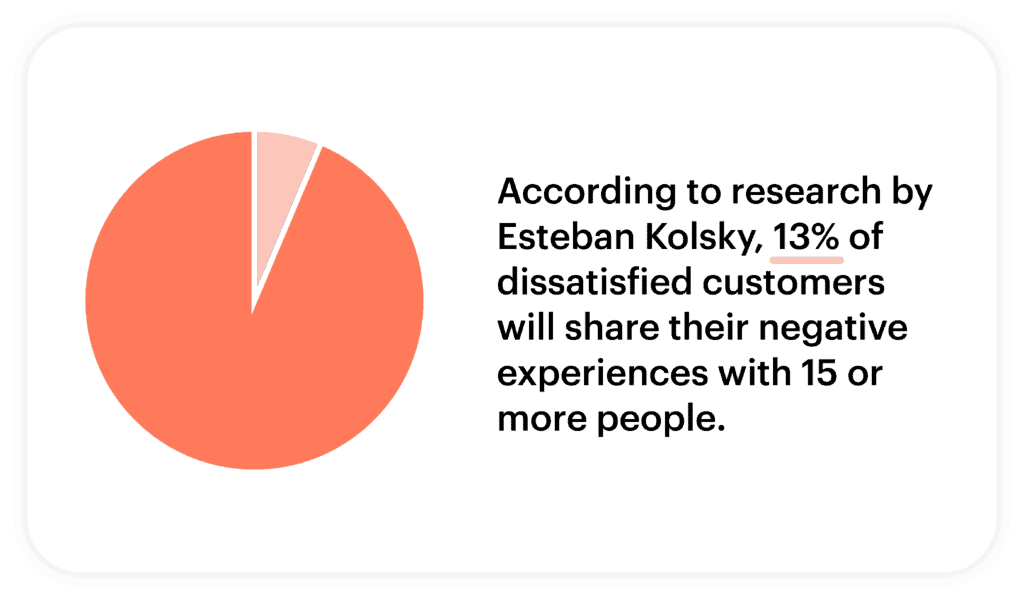
To avoid the negative impact on customer retention and revenue growth, B2B organizations must re-evaluate their support strategies, invest in B2B-specific tools, and cultivate a customer-centric mindset. By delivering exceptional, personalized support that meets the unique needs of B2B customers, organizations can improve retention rates, drive revenue growth, and foster long-term success.
The importance of investing in B2B-specific tools
The risks associated with using B2C tools and mindset in B2B support underscore the importance of investing in B2B-specific tools and adopting a customer-centric mindset tailored to the unique needs of B2B customers. Failing to make this shift can not only result in customer attrition and stunted revenue growth, but also miss out on the opportunities that come with strong, long-term customer relationships.
Investing in B2B-specific tools, such as systems of intelligence and customer success platforms, can help organizations deliver personalized, proactive support that drives customer satisfaction and loyalty. These tools provide valuable insights into customer behavior and preferences, facilitate seamless collaboration between internal teams, and enable more strategic, long-term support initiatives.
Moreover, adopting a B2B-centric mindset involves understanding the intricacies of B2B customer relationships and focusing on delivering value at every stage of the customer journey. This approach encourages support teams to become trusted partners and advisors, rather than merely transactional problem-solvers.
By investing in B2B-specific tools and mindset, organizations can foster deeper customer relationships, improve retention rates, and drive sustainable growth. In an increasingly competitive business landscape, prioritizing B2B support excellence is crucial for organizations seeking to differentiate themselves and secure long-term success.
Conclusion
B2B vs B2C in processes, customers, and tools
In summary, B2B customer support has evolved significantly over the years, and it is crucial for organizations to recognize and adapt to the unique needs and challenges of this domain. The key differences between B2B and B2C support include:
- Process and Importance: B2B support is relationship-focused and strategic, emphasizing customer retention and long-term success, whereas B2C support is typically transactional and focused on quick issue resolution.
- Customers: B2B customers are more complex and sophisticated, with higher expectations and demands for personalized, proactive support.
- Tools: Traditional B2C tools, such as ticketing systems, are often inadequate for addressing the unique requirements of B2B support, necessitating investment in B2B-specific tools like systems of intelligence and customer success platforms.
By understanding these differences and adapting their support strategies accordingly, organizations can provide exceptional support experiences that strengthen customer relationships, improve retention rates, and drive sustainable growth.
Call to action for companies to prioritize B2B-specific support tools
As the B2B landscape continues to evolve, it is crucial for organizations to prioritize investments in B2B-specific support tools and adopt a customer-centric mindset tailored to the unique needs of their B2B customers. By making these adjustments, companies can not only mitigate the risks associated with using B2C tools and mindset in B2B support, but also unlock the potential for stronger relationships, increased customer satisfaction, and long-term growth.
To succeed in this endeavor, organizations should:
- Conduct a thorough assessment of their current support processes and tools, identifying areas for improvement and alignment with B2B best practices.
- Invest in B2B-specific tools, such as systems of intelligence and customer success platforms, to deliver more personalized, proactive, and strategic support.
- Foster a culture of customer-centricity, empowering support teams to become trusted advisors and partners to their B2B customers.
- Continuously monitor and measure support performance, using customer feedback and data-driven insights to drive ongoing improvements and innovation.
By prioritizing B2B-specific support tools and mindset, organizations can set themselves up for success in an increasingly competitive business environment and build a strong foundation for lasting customer relationships and sustainable growth.
B2B support as a value center rather than a cost center
As organizations adapt to the unique requirements of B2B customer support, the future will see a paradigm shift in the way support is perceived within the B2B landscape. Instead of being viewed as a cost center focused solely on resolving issues, B2B support will increasingly be recognized as a value center, playing a strategic role in driving customer success, retention, and business growth.
This transformation will require organizations to:
- Align support goals with broader business objectives, emphasizing the long-term success of their customers and the impact of support on customer satisfaction and loyalty.
- Integrate support with other customer-facing functions, such as sales and customer success, to provide a holistic, seamless customer experience.
- Embrace data-driven decision-making, leveraging advanced analytics and customer insights to continuously optimize support processes and deliver proactive, personalized support.
- Invest in ongoing training and development for support teams, equipping them with the skills and knowledge needed to serve as trusted advisors and strategic partners to their B2B customers.
By embracing this vision of B2B support as a value center, organizations can unlock the full potential of their support teams, strengthen customer relationships, and drive long-term success in an ever-evolving business landscape.



